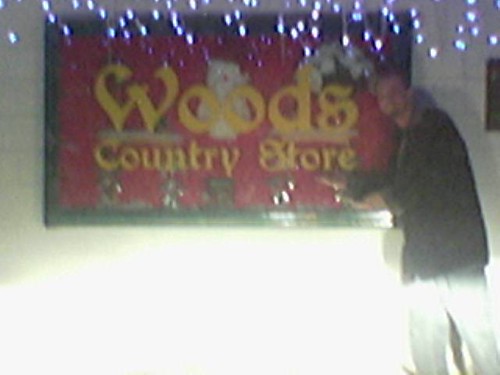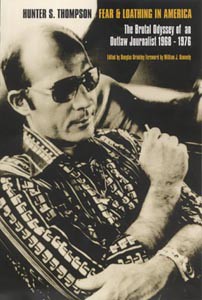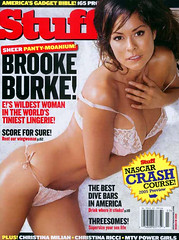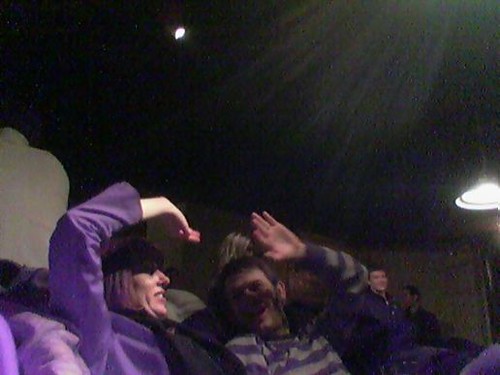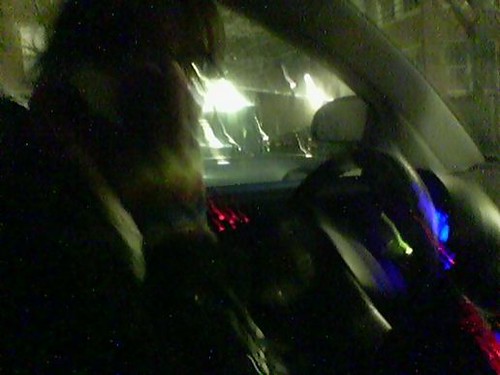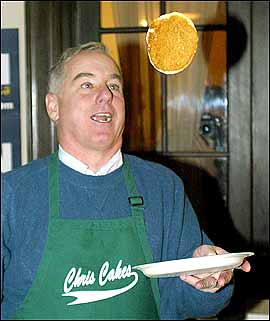#5:
Forever, by Judy Blume. I read a few Judy Blume books as a kid, but mostly of the "Superfudge" and "Tales of a Fourth-Grade Nothing" variety, not the "Are You There God, It's My Margaret?" titles. But a few weeks ago when I was looking for girl coming of age stories, "Forever" came up over and over again. I'm interested in fiction for kids, especially for teenagers, so reading this was fun. It moves really fast and mostly takes place through dialogue--even scenes where action is taking place, it is sometimes conveyed to the reader through the back-and-forth conversation of the characters. I don't know if it's ever been staged--probably not this book, due to the juices transferred--but some of Judy Blume's other work, perhaps.
My biggest beef with this book was the lack of physical detail. Most of the characters weren't described at all--Eric is short, Sybil is fat, Michael has hair the color of Erica's dog and a mole on his cheek--but I took that to be a choice Judy Blume made, perhaps to better allow a younger reader to fill in the faces with those already familiar to her. Scott McCloud talks about this method as it relates to comics, and I imagine it works the same way here. That's fine, but other things bothered me. Details about the physical world the characters live in are kept very vague, but the details that are given often puzzle me. In almost every home the kids enter, the style of furniture is described, but little else. In Katherine's home, we learn early on that it is adorned with tapestries designed by Katherine's little sister Jamie, but it's hardly mentioned again and is therefore pretty forgettable. We learn that Katherine hangs up photos of her boyfriend Michael when she goes away to summer camp, but I don't remember hearing anything about how she decorates her bedroom at home, even though she spends plenty of time there--at one point, laying in bed sick for four days. Some of the details are funny, though. The first time Katherine talks to her mother after Katherine has sex for the first time we are told, apropos of nothing else, that her mother is eating a hot dog.
The dialogue is a little aggravating at first--there's little self-consciousness apparent in anyone except Katherine. The characters are very willing to discuss their feelings openly and honestly, such as when Michael tells Katherine that he has come back to the scene of a New Year's Eve party expressly to see her, or when Erica and Artie deal with Artie's ambiguous sexuality. There's probably an entire essay in Artie's experience--he explores the question of his sexuality with an open and honest partner, finds no answers, attempts suicide, and is henceforth abandonded by most of his friends.
That said, the book can't be everything for everyone, and doesn't try to be. It has a very specific story that it's trying to tell, and it sticks to it. The talk about sex and the sex scenes themselves are open and honest and well done, accurately conveying the way it feels to discover someone else's body when you've never done so before. I was a little scandalized to learn this book was being passed around by some of my female friends when they were in third grade, at a time when I was still caught up in G.I. Joes and comic books and had no conception of wanting to lay down on a rug with a girl in her parent's den. So in theory, when I asked Patty Mayfield to go with me in the third grade, she had a whole other level of understanding of what that could mean some day. I just thought she was funny and liked her she-mullet.
At first I thought the language was a little condescending, but 30 years after the book was published it still lingers in the memory of girls who read the book 15-20 years ago. It's a shame that when I visited a handful of bookstores in Chicago, no one carried it--I think it's the perfect book for girls to read before they really know what it is they're reading about, if that makes sense to anyone. Maybe I'll smuggle a copy home the next time I visit and leave it laying around for prying eyes to discover.
